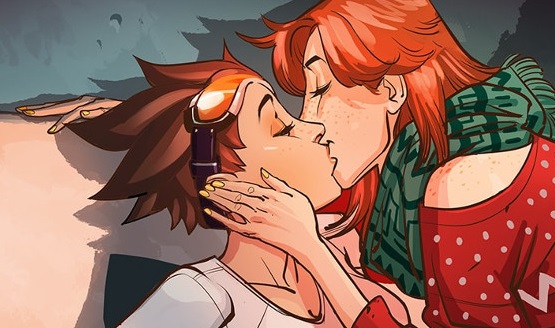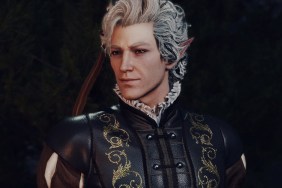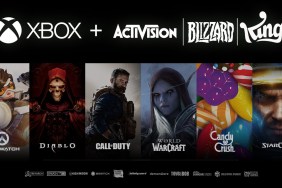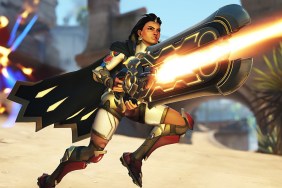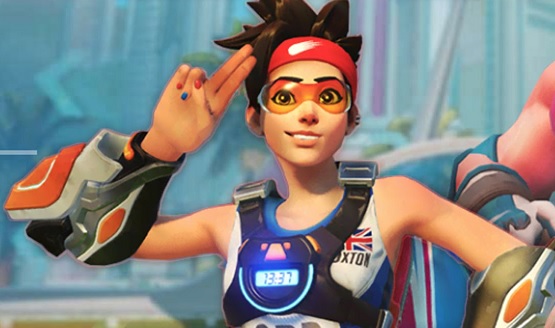
[Editor’s note: this article expresses opinions of its author and does not necessarily represent views of PSLS as a whole.]
With Blizzard’s confirmation that Overwatch‘s Tracer has a female lover has come the predictable reactions. Its new holiday-themed comic “Reflections” tells a heartwarming story about Tracer, Winston, and a party, but what’s got everyone talking is Tracer’s big, gay girl kiss.
Forced In? No, but…
One of the more common negative reactions to this news — and that we often see when a character is homosexual — is calling the revelation “forced in.”
I don’t feel that with Tracer being a lesbian (or bisexual, as the case could hypothetically be). Getting official confirmation in Blizzard’s new comic, I felt only, “Yeah, that makes sense.” Thumbs up to the comic as a whole and the beautiful kiss. I love it.
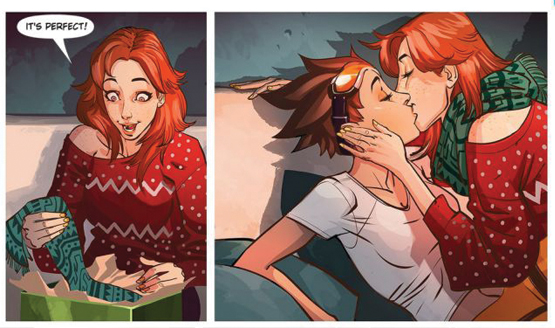
The only thing that feels odd about this reveal is that Blizzard spent months drawing specific attention to it. If the comic had come out and we’d all just learned that Tracer isn’t heterosexual, I’d have no problem with that. But instead, it all felt very circus-like. We’ve been hearing about an upcoming reveal of an LGBTQ Overwatch character for almost as long as we were hearing about Sombra.
Blizzard’s confirmation that Tracer has a female lover is a fine inclusion, but why make a big, specific deal about presenting it? It should be there, but I think it’d be better to have it treated the same way as a heterosexual relationship: we see it and that’s that.
Should there be better representation of LGBTQ community in gaming as a whole? Absolutely. We’ve got quite a lot of improvement we can make. But why did Blizzard specifically need to dangle it around like “And heeeeeere comes someone gaaayyy!” I don’t think Tracer’s newly confirmed sexuality is a pandering move, but that kind of hype-up can make it appear that way.
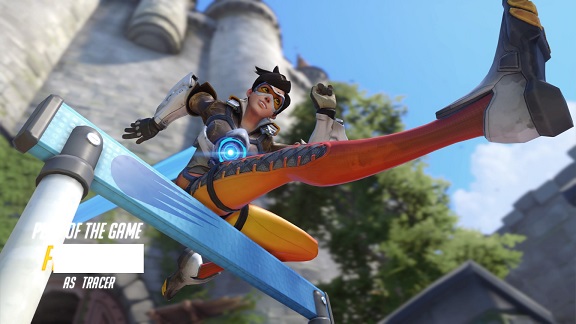
That makes it more of a spectacle than it needs to be. Let people learn of that aspect the way they learn about everything else: naturally and over time.Many authors subscribe to the idea of “Show, don’t tell” for helping readers learn more about their characters. In his memoir and writing advice book On Writing, Stephen King expresses favor of this notion, citing that if you’re told something straight away, it can feel less important to you. But if you see it unfold — if you’re shown by the characters’ dialog and actions — you feel closer to those characters, care more about what happens to them.
Being told to watch out for someone gay took away from the power of the moment Blizzard could’ve had. Even though it didn’t feel forced in, people can claim it was forced in, thanks to awkward teasing.
Need To Know?
Overwatch has no shortage of passionate fans who crave more and more info and media about its cast. So what do we need to know and what do we not?
As I ramble above and describe much better below, we might not necessarily need to know any character’s orientation, but when a large pocket of fans continues to beg, why not give it to them? No one loses anything, and best of all, it has zero impact on the game itself.
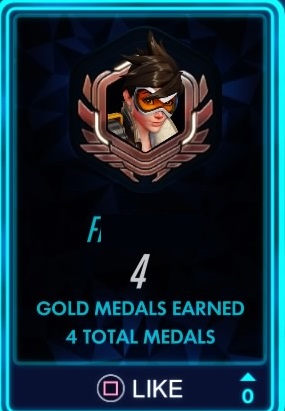
Overwatch doesn’t include a story mode (and in fact, apart from the opening cinema, delivers little narrative in-game), so if players really have a big problem with Tracer’s romantic interests, good news, they can easily ignore it. The game remains the same.One could make the valid point that we still have all kinds of heterosexual relationships present in all media, video games included, that cannot be avoided, but…one step at a time, I guess.
Now a Stronger Character
Internet outrage, though admittedly more mild than expected, is still disappointing (and sometimes weird). I see a lot of “But she can’t have sexuality because she’s a fictional character!” Apart from the quick and easy counterpoint that we never see this brought up when a fictional character is heterosexual, I think it’s important to focus on that second word: character. What is a character?
The more you know, the stronger a character becomes. From food preferences, to favorite sport, to facts and figures like age and birthplace, to — yes — even sexuality, the more information we have about a character, the deeper that character is. Ever hear complaints about shallow characters? Lack of information is part of the problem — lack of seeing what makes a character any different from a sheet of paper.

To those who doubt, I issue the challenge to write a story (short, novel, for a video game, an opera, or anything) with absolutely no romantic interest or orientation and see what kind of critical reception it gets. Write something else with characters that do have some hint about their sexuality, big or small, and see which or your works is generally regarded as having better characters.
…That’s gonna take us all years so I guess I’d better stop writing this and start writing other stuff. Let’s all agree to meet back in the comments section in 20 years and see how we all did.
[This article originally appeared on our network partner, GameRevolution]
